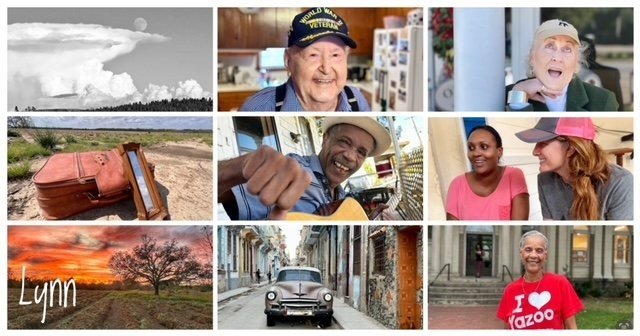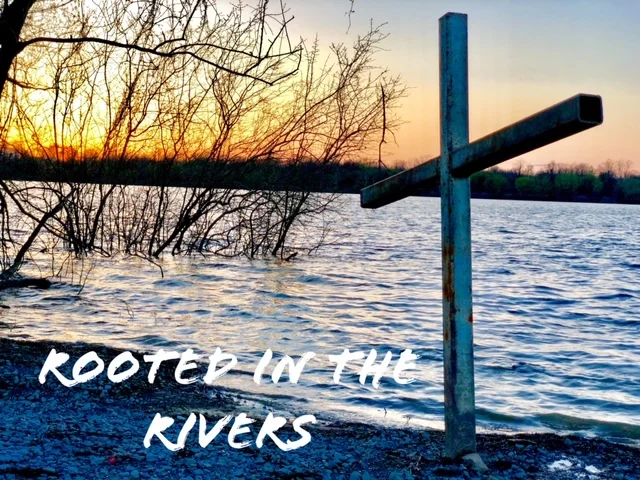Rooted in the Rivers
Sitting on the bank of the Mississippi River in Greenville waiting for sunset. My grandmother, Myrtle, was a secretary here until the Great Flood of 1927 forced her out by train car almost 91 years ago. Surviving the biggest flood in American history is one of the few stories I know about her.
Granny was my dad’s mother. His own life was tied to the Yazoo River, the other river that forms the Delta. Before I was born, he bought land in Eden, where the Mississippi hills flatten out, and cleared the swampy slough of trees and an alligator. He built ponds in the gumbo mud so thick it will suck your boots off. My city mom became a farmer’s wife, raising two young kids during the day and checking oxygen levels in the ponds in the “pitch black,” to let dad sleep at night. At night my brother, Rod, and I snuck out to play with the puppies born in the old hollow tree. Our dog, Suzy Q, always had her puppies there and each litter looked and smelled the same.
My parents taught us how to swim in the ponds and ride bikes on gravel roads. There were bouquets of Ragged-Robins, blackberry cobbler made from the berries we picked, purple martins that nested in our carport every year, and bugs, fish, and turtles in every jar or container I could find. We played Go Fish by candlelight when the power went out and sat on the dresser and screamed when dad chased a rat with a broom. Mama made our clothes and taught me how to make dresses for my dolls from her scraps.
Rod and I worked on the farm each summer making $4 an hour. I mowed grass with a push mower or waded through muddy ponds avoiding snakes and fish and pulling spawns (big, slimy globs of fish eggs) out of barrels stuck to the bottom of the ponds.
I didn’t appreciate growing up on the farm or living in the Delta. The land was just one long highway through a big cotton field on the way to football games and basketball games. I graduated from high school ready to leave.
Today it is the place I go to leave the world behind and quiet the voices in my head. The sun, birds, and long, straight rows touching the horizon are familiar and where the memories of childhood come back.
My refuge is one of the poorest places in the country and seems like it is stuck in another time but it is alive and you can feel the heartbeat of music here. In any town from early in the morning to late at night, beer bottles are carried around in brown paper sacks. Close to a dumpster that says “No Deer” is the head of a deer next to a bottle of gin. A trailer and shed are painted blue, but the family cleared out anyway, leaving crates of canned pickles and pears and a busted lamp behind. From Shaw to Yazoo City, people still tell stories of scratched hands and tired backs from picking cotton all week and going into town on Saturday nights.
Today some of the fields are flooded and the Mississippi is high, but it peacefully rolls onto the shore. Sitting here, it is hard to imagine the fear Granny felt when she was running away from the rising water that would cover 27,000 square miles and be 30 feet deep. What did she wear and what did she carry with her? Tomorrow, I am going to the 1927 Flood Museum to look at every face in every picture to see if I can find her, even if I don’t know what she looks like or how old she was.
I may not know much about Granny, but I know the son she raised. The one who built his dream from a slough, battled the forces of nature to save his fish and was there for employees whenever they needed a help. Today he talks about Jesus and salvation to prisoners and guides Gideons delivering Bibles. He has loved my mom for 50 years and my brother and me for almost as long. No matter who Granny was or what she did, it takes a good woman to raise a man like that. I am thankful she got on the train car and out of that flood.






